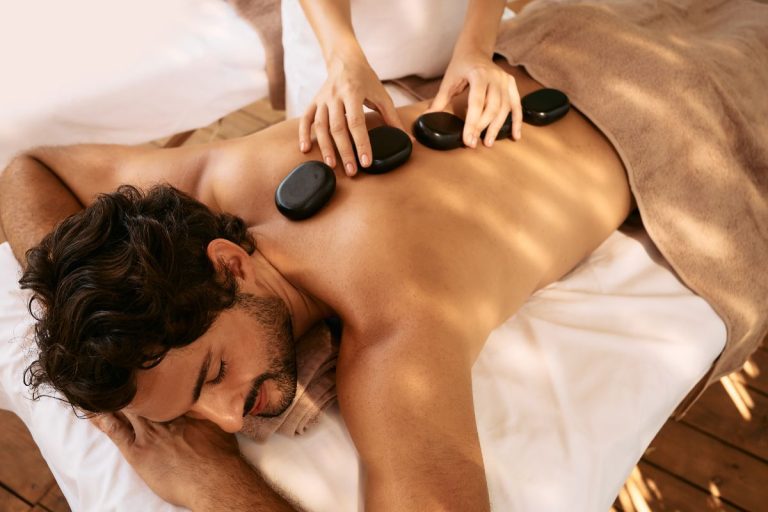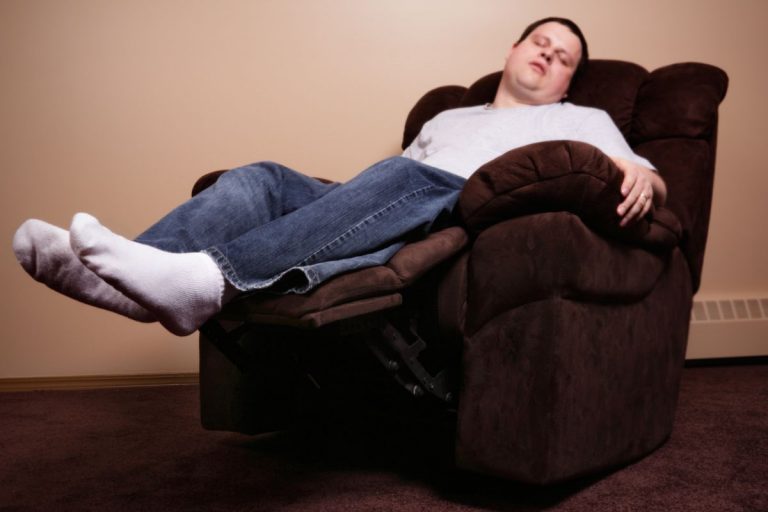We’ve all been there.
After a long day of work and acing all your daily goals, you chose to reward yourself with a sponge bath, some wine, and Netflix. One episode becomes three. It’s now 1 AM, and you have entirely overshot your standard bedtime.
Morning comes, and it’s time to set things in order, going back to being your productive self.
However, questions immediately pop into your mind. Should I go for my morning workout as usual despite feeling sleep deprived? Will an exercise session help get me on track or make things worse?
Should You Exercise on Bad Sleep?
It depends.
Sleep and exercise are two of the most critical components that impact the proper function of the body.
Good sleep is fundamental to growth, tissue repair, energy replenishment, and the body’s overall reinvigoration. On the other hand, exercise helps elevate almost all of the body’s positive markers, promoting general health.
Together, getting both elements right can significantly improve and help maintain physical and mental health. Plus, several scientific studies point to a direct and intricate relationship between both activities.
Every seasoned gym-goer can attest to the fantastic effects of exercise. A short bout of exercise can lift the mood, increase alertness, and often is the best boost you can give a tired brain.
Hence, it follows that exercise—especially light exertion, can be an excellent cure for the effects of sleep deprivation. However, on the other hand, it’s during sleep that the body repairs the damage it incurred during the activities of the previous day—and exercise can be a significant contributor to this damage.
This high level of interrelationship creates a problem. In situations like these, where sleep and exercise are at loggerheads, making the right decision can get complicated quickly.
Should you workout after a lousy night’s sleep to help improve your state? Or should you wait until you’ve had enough chance to recover fully from the next night’s sleep?
The key is finding the right balance.
Picking up an exercise session while sleep deprived is not always a bad thing. Often, choosing to skip your workout because you lost a couple of sleep hours may just be you convincing yourself to take the easy way out.
Powering through your sessions will worsen your level of exhaustion, right? Wrong.
Whether you should exercise while sleep deprived or not and how much depends on several factors, including your levels of deprivation, and the type of drills you plan to implement.
Factors to Consider
There is no scientific consensus on whether you should workout when in sleep-deprived states. Hence, there are no hard and fast rules to follow. It would be best to consider the following recommendations as general guides for making the best of specific situations.
How Much Sleep You’ve Had
The critical determinant on whether you should carry out a specific training regimen is the amount of sleep you managed to record during the previous night.
The National Sleep Foundation recommends that adults aged 18 and older should aim for an average sleep span of 7-9 hours per night to guarantee adequate rest and recuperation and maintain optimal physical and mental function.
You should consider how far you fall short of this standard when deciding whether to exert yourself on the following day.
If you slept for only around six hours, putting in some workout time at dawn should be too much of an issue.
If you are not a morning person, a morning workout session may be a tall ask.
Consider shifting your session to the afternoon to give you that much-needed boost around when the fatigue begins to ramp up.
In one study, researchers found that only 15 minutes of cardiovascular exercise provided a better boost to alertness than a coffee cup with 50mg of caffeine. Getting some sweat in can be one of the most effective ways to get rid of the morning grogginess you get from losing a couple of sleep hours.
However, you must pay attention to the body and ensure you feel responsive before carrying out any drills.
A good rule of thumb when training in a sleep-deprived state is to keep things minimal—avoiding going too hard on the bench. This is no time to attempt to set new personal bests.
One way to guarantee the best results is to completely cut out any intense regimens—heavy lifting, high-intensity exercises, and complex gymnastics. Keep this light, simple, and short.
Excellent exercises to try out in this state include those that focus on improving stability and mobility. Get some pull-ups in and some light cardio, and you should be good to go.
However, if you got considerably less than six hours of sleep, you are entering iffy territory, and you should consider skipping the exercise session altogether.
Sleeping for less than six hours is no way to live. If you find yourself doing this often, you should seriously consider reevaluating your schedule to avoid creating or worsening preexisting health conditions. (the only exception here are people on polyphasic sleep schedules.)
According to a report by the National Sleep Foundation, extreme sleep deprivation can have similar effects to drunkenness, causing a significant reduction in cognition, concentration, and mobility. Once you go below the 5-hour-sleep mark, you are squarely in this category. Hence, it would be best if you avoid overexertion.
Tip:
While pre-workout drinks and stimulants can provide that quick boost you need to power through your workout sessions, while you are sleep deprived, these substances can further hamper your cognition and increase the risk of injury.
On the other hand, a short 20-minute nap can go a long way in boosting your cognitive levels and increasing alertness.
Intense training in this state can quickly become dangerous due to your severely impaired coordination skills.
If you must train, consider keeping things light—using the treadmill on low, going for a stroll, or using some ultralight weights. Alternatively, you can opt for more fun, less-risk activities like yoga, pilates, or stationary cycling.
People who pulled an all-nighter should consider skipping any form of exercise altogether and get some rest.
Important:
Irrespective of whether our guidelines recommend exercise or not, you should listen to your body first when it comes to sleep deprivation. However, don’t use that as an excuse to chicken out.
You should gauge how you feel before carrying through with a workout session. There is a clear distinction between feeling lazy and being on the edges of total exhaustion—the latter manifests as an inability to push your body and feeling of nausea or lightheadedness.
If you feel like you are causing more harm than good by exercising, don’t force it. Pack your bags and try again after getting your full rest.
Your Workout Regimen
Another critical factor to consider is how much you need that particular workout sesh.
People who work out regularly, say four times a week should consider missing one on a day they wake up sleep-deprived. You can easily slow down and make that day a rest day. This recommendation holds especially true if you wake up feeling sore.
Getting enough rest is critical to muscle growth, weight loss, and strength gain. People in this category will often gain more from taking a day off than grinding on and powering through the sesh.
Overtraining can considerably reduce your performance over time, severely affect your athletic recovery, and detract from your sleep quality.
Alternatively, if you could do with more workout sessions, you should consider squeezing one in if you can.
If your goal is to get in three workouts a week and barely match that, you shouldn’t let a couple of hours of missed sleep hold you back. Consider training lightly instead of skipping the workout session altogether.
More FAQs on Workout and Sleep
Should you workout when hungover?
The critical determinant on whether you can work out in this situation is how nauseous you feel. Make sure to hydrate, eat, and rest until you feel nausea has reached its bare minimum, then, you can exercise.
However, even then, you should keep things simple. Start with light stretching, yoga, or go for a walk.
Should you workout when jetlagged?
Yes. Working out can often be a great way to get over the drab feelings that come with jetlag. If you choose to go the workout route, try to time your sessions to line up with your regular workout times back home.
However, you should continue to pay attention to your body. Stop any exertion immediately if you feel like its making your jetlag worse, not better.





